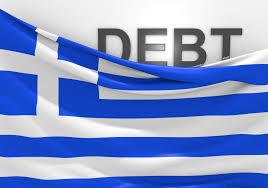
According to the head of Europe’s rescue fund, IF Greece follows that path to reforms, the debt-ridden nation would probably not need any precautionary credit line following the expiry of its bailout in August this year.
The head of the European Stability Mechanism (ESM), Klaus Regling said this in an interview on Saturday.
Since 2010, euro zone countries and the IMF have granted Greece a total bailout of 260 billion euros in financial aid. The third bailout for the country would come to an end in August. There are however some European Union policymakers and Greek central bankers who believe that the country would not be able to make it along without a line of credit following the ending of financial aid despite the fact that the country has recently regained access to the market.
However, there would be some conditions that would accompany a precautionary credit line and that is what the Greek government wants not to engage into because the country has had to go through some tough austerity measures over the last eight years. Those strict measures have not only hurt the Greeks badly but have also dented the popularity of the government in the polls.
The people of Greece, investors and markets would be assured by a precautionary arrangement and it would be good for Greece, said Regling to Proto Thema newspaper in an interview.
“But it very much depends whether it’s really needed,” he said. “If everything remains quiet, reforms continue and Greece continues to develop its market access, then based on what we know today it’s probably not needed.”
More than half of the 332 billion euro public debt of Greece is held by the ESM and the European Financial Stability Facility which makes these two bodies the largest creditors of Greece. The debt amount of Greece is almost 180 percent of the economic output of the country.
Measures for short, medium and longer-term debt relief have been pledged by them. the first set was offered by the ESM last year which reduced the risk for Greece of having to pay more money to service debt in case there is an interest rate hike in the future.
And in order to ensure that the huge debt burden on Greece is sustainable, the aspect of whether more relief is required by the country would be looked into by the euro zone finance ministers in the forthcoming months.
Potentially including the ESM buying out the loan to Greece by the IMF – which are more expensive, a decision for granting of medium term relief would potentially be taken in August, Regling said.
“If there’s additional debt relief, there might be some additional surveillance, some kind of tighter surveillance”, he added.
According to the International Monetary Fund, for Greece to come out of the crisis, it would need debt relief. The IMF was part of the first and second debt relief programs for Greece.
(Source:www.reuters.com)
The head of the European Stability Mechanism (ESM), Klaus Regling said this in an interview on Saturday.
Since 2010, euro zone countries and the IMF have granted Greece a total bailout of 260 billion euros in financial aid. The third bailout for the country would come to an end in August. There are however some European Union policymakers and Greek central bankers who believe that the country would not be able to make it along without a line of credit following the ending of financial aid despite the fact that the country has recently regained access to the market.
However, there would be some conditions that would accompany a precautionary credit line and that is what the Greek government wants not to engage into because the country has had to go through some tough austerity measures over the last eight years. Those strict measures have not only hurt the Greeks badly but have also dented the popularity of the government in the polls.
The people of Greece, investors and markets would be assured by a precautionary arrangement and it would be good for Greece, said Regling to Proto Thema newspaper in an interview.
“But it very much depends whether it’s really needed,” he said. “If everything remains quiet, reforms continue and Greece continues to develop its market access, then based on what we know today it’s probably not needed.”
More than half of the 332 billion euro public debt of Greece is held by the ESM and the European Financial Stability Facility which makes these two bodies the largest creditors of Greece. The debt amount of Greece is almost 180 percent of the economic output of the country.
Measures for short, medium and longer-term debt relief have been pledged by them. the first set was offered by the ESM last year which reduced the risk for Greece of having to pay more money to service debt in case there is an interest rate hike in the future.
And in order to ensure that the huge debt burden on Greece is sustainable, the aspect of whether more relief is required by the country would be looked into by the euro zone finance ministers in the forthcoming months.
Potentially including the ESM buying out the loan to Greece by the IMF – which are more expensive, a decision for granting of medium term relief would potentially be taken in August, Regling said.
“If there’s additional debt relief, there might be some additional surveillance, some kind of tighter surveillance”, he added.
According to the International Monetary Fund, for Greece to come out of the crisis, it would need debt relief. The IMF was part of the first and second debt relief programs for Greece.
(Source:www.reuters.com)





